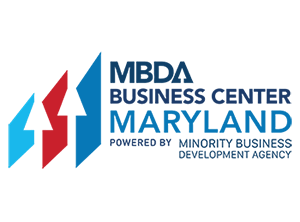Webinars
How to Take Advantage of Your Socio-Economic Status Effectively – It’s Not What You Think (2024 Update)
Client Code Required Does this sound familiar? “Hi, we’re an 8(a) firm or an SDVOSB firm that provides…” Your mentors, colleagues, and small business counselors tell you, “Put it front and center! There are federally mandated set-asides for your company! Large companies require subcontracting plans for companies just like yours! Use your certification.” The truth […]
Cash Flow: The Key to Obtaining More Government Contracts
Client Code Required *Your registration includes access to the on-demand recording. Mastering cash flow management is essential for the sustainability and growth of any business. This webinar is specifically designed to equip businesses and contractors with comprehensive strategies for managing cash flow on a per-project basis. You will learn how to accurately bid on future […]
GSA Multiple Award Schedule – Is It Right For Your Company? (2024 Update)
Client Code Required *Your registration includes access to the on-demand recording. There’s a common misconception in government contracting: obtaining a GSA Multiple Award Schedule (MAS) is your golden ticket to an influx of unsolicited orders from government entities. However, the reality is quite different. Despite holding a MAS, a significant number of contractors—over half, in […]
Hiring a Strong Business Developer – How Any Company Can Hire Superstars (2024 Update)
Client Code Required In the competitive federal marketplace, a strong business developer is crucial. Yet, many companies—both small and large—struggle to find candidates who can successfully win contracts, despite their impressive resumes and outstanding references. This session aims to help companies avoid the frustration and cost of hiring ineffective business developers. On average, it costs […]
Monthly Webinar Series | Mental Health in the Workplace – Reju
This webinar will cover the following topics: √ Implementing a 5-Step Action Plan for Addressing Mental Health Crises in the Workplace √ Utilizing Tools and Resources to Enhance Workplace Health and Wellness √ Identifying Risk Factors and Warning Signs of Mental Health Issues
Maximize Your Potential with the SBA’s Mentor-Protégé Program
Client Code Required Touted as a “game-changer” when it was first introduced in 2016, the U.S. Small Business Administration’s All Small Mentor-Protégé Program isn’t new anymore. Known now as simply the “SBA Mentor-Protégé Program,” it remains a powerful tool for both large and small contractors. Join us for an insightful webinar with Govology’s Legal Analyst, […]
The Buy Indian Act: Regulatory Updates and Their Implications for Tribal-Owned Businesses
Client Code Required The Buy Indian Act is a law that gives contracting preference to companies owned by Native American tribes. This law has been on the books for a century and it seems to be finally getting some teeth through regulatory changes and updates. This webinar will discuss the Buy Indian Act, as well […]
Winning Federal Construction Contracts (2024 Update)
Client Code Required The federal construction market presents significant opportunities for small businesses, with nearly 50% of work in many states contracted directly to them. In this webinar, you will learn how to assess the market size in your state and gain insights into navigating this lucrative yet complex marketplace. Topics covered include: Key differences […]








